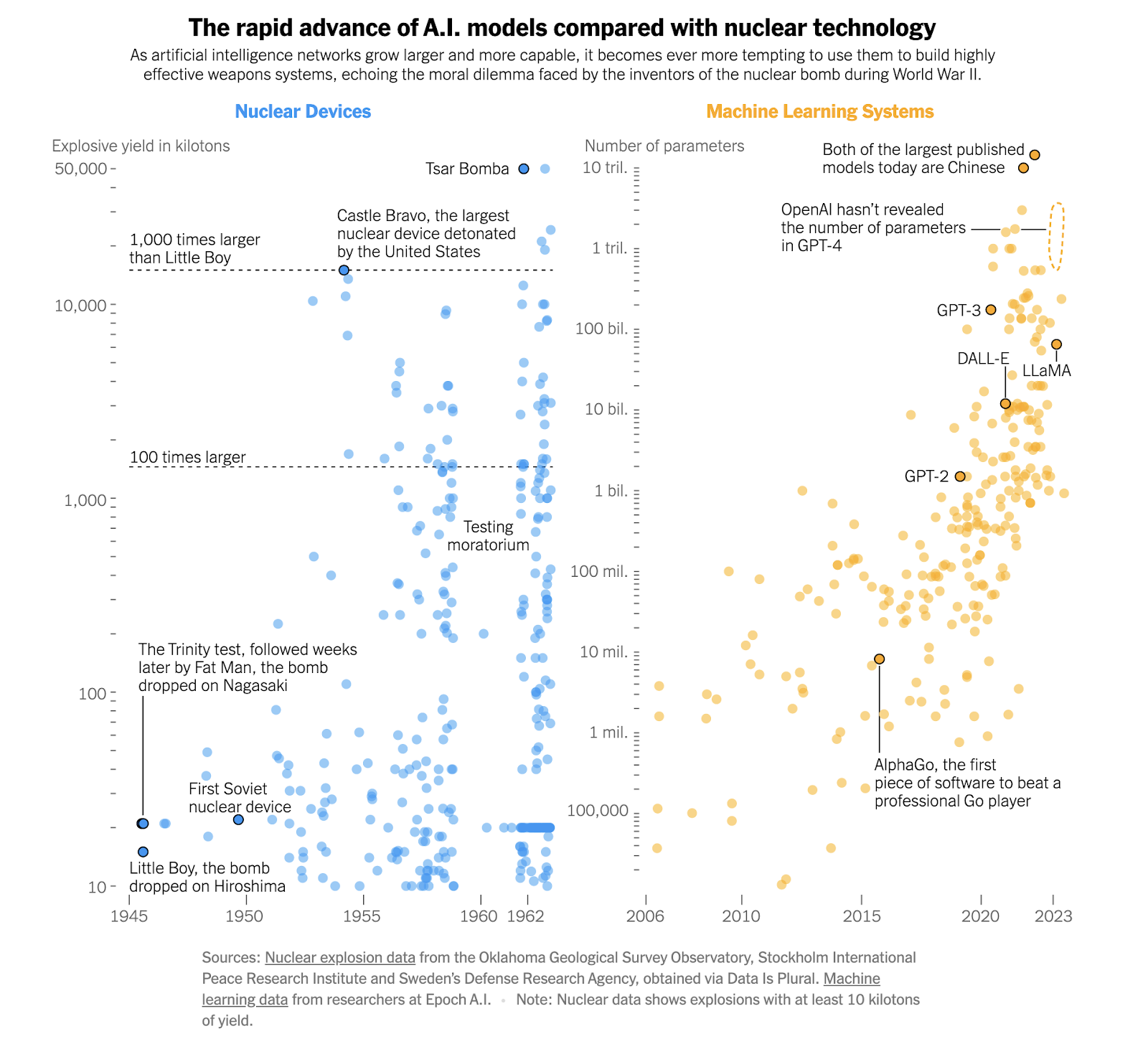Issue 142: Is AI Changing How We Read?
Welcome to Backstory, a weekly newsletter turning global technology shifts into a three-minute read. This week, we’re talking about AI and reading. – Mary Ames, Director of Strategy
THE BIG TAKE
Is AI Changing How We Read?
If you are reading this, then you haven’t forgotten how to read. But how we read and use written language is undergoing one of its most profound transformations in human history. That’s partially the result of where we read (digital platforms as opposed to paper ones, for many of us) and who produces what we read (artificial intelligence versus human authors). Put simply, reading well – in the fullest sense of the phrase – is becoming a thing of a bygone era, and that’s concerning.
No more reading? In a review of several books on the topic of reading last week, the Financial Times notes that the arrival of AI bots like ChatGPT might “take away the need for humans to read and understand texts” because the algorithms that drive these powerful language models will do the heavy lifting that humans once did. This shift is already starting to take shape in everyday life. Consider the last time you used ChatGPT or Bard. Did you find an answer to a question that freed you from doing the reading and work yourself? Most likely.
We have been here before. Using AI language models to help save time and ultimately produce better work isn’t bad. The problem is that these platforms are still young, and we don’t know how much of the difficult work of thinking and reading they will ultimately replace. Doing hard things in any part of life makes us better and wiser people. If we outsource the difficult work of reading and thinking deeply about what we read to language models, something vital to our creativity will be lost in the process. Humans have gone through similar events in the past with the advent of other technologies. We just need to be aware of what is happening to us with the latest AI innovations.
QUOTE OF THE WEEK
“The ability to observe without evaluating is the highest form of intelligence.”
– Jiddu Krishnamurti, philosopher
CHART OF THE WEEK
This week we are looking at AI and nuclear technology. The New York Times published a controversial opinion piece arguing that AI is the nuclear technology of this era. It’s worth reviewing the argument.
OUR VIEWS THIS WEEK
Digital well-being: It's time to get serious about well-being. Let’s face it: the world is still a very tense place. The pandemic remains an ever-present threat. The global economy is up and down. Complicating matters is that we have never been more addicted to scrolling on our phones. Getting off one’s phone is much easier said than done these days, but even thirty minutes a day can make a big difference in one’s mental health. This is especially true if that screen time break happens before bed. We explore more tips and tricks in this piece published by Xische about digital health.
Aging in the digital age: Sticking with the theme of well-being, we just published a new piece looking at how we can strive for more purpose in our lives. Nothing inspires the human spirit more than the inevitability of aging. The famed Swiss psychologist Carl Jung transformed psychology with his ideas about the middle of our lives. Once we reach a certain halfway point, our period of prolonged decline stirs unavoidable emotions inside us. Read more in this piece published by Xische.
SPOTTED ELSEWHERE
Ocean currents. Climate change is on everyone’s minds, and for good reason. It might be happening much faster than we think. New research from Denmark suggests that the vital ocean currents that regulate the climate for large areas of the planet are collapsing much sooner than expected. The last time there was a major slowdown in the mighty network of ocean currents, the New York Times notes, that shape the climate around the North Atlantic, it seems to have plunged Europe into a deep cold for over a millennium.
Lonely books. Since we are on the topic of reading this week, the FT has a lovely meditation on life with physical books. If you have ever found yourself sitting in a public space with a book, you likely know the feeling. Nilanjana Roy writes, "just the act of being a reader in a crowd of commuters gives me a sense of having and taking my time.” Her piece is a powerful reminder that you are never alone with a book.













